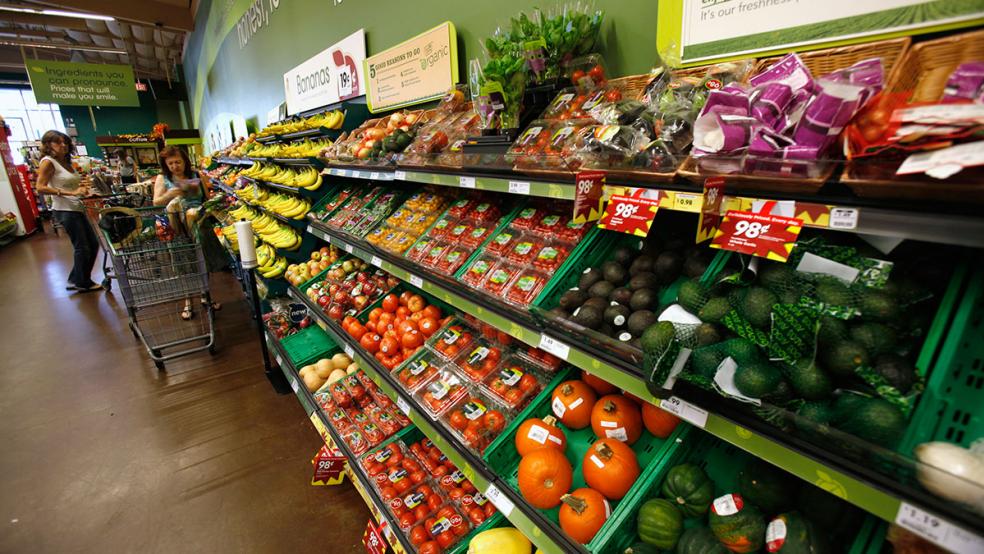Consumer prices rose 2.9% in the 12-month period ending in July, the Labor Department reported Wednesday. It was the first time in more than three years that the 12-month inflation rate as measured by the Consumer Price Index dropped below 3%, and it may clear the way for the Federal Reserve to start lowering interest rates at its meeting in September.
On a monthly basis, prices rose 0.2%. The core CPI rate, which ignores volatile food and fuel prices, was also 0.2% on a monthly basis, and 3.2% on an annual basis — the lowest reading for that measure since April 2021.
The price of used cars and trucks showed a particularly large decline, falling by 10.9% over the last year. Housing costs were a notable exception, as the cost of shelter rose 5.1% over 12 months and 0.4% from June to July.
The White House celebrated the good report. Asked by a reporter if the U.S. has “beaten inflation,” President Joe Biden said, “Yes, yes, yes. I told you we’re going to have a soft landing ... My policies are working. Start writing that way, OK?”
Bharat Ramamurti, former deputy director of the National Economic Council in the Biden administration, noted that the CPI data comes on the heels of reports showing that wholesale inflation is softening, as are inflation expectations among consumers. “We’ve won the battle against inflation,” he wrote on X. “It’s time for the Fed to begin cutting rates.”
Wall Street analysts also gave the report positive reviews. “Investors and policymakers alike will find this report mostly good for markets and the economy,” said Jeffrey Roach, chief economist at LPL Financial, per Bloomberg. “As inflation decelerates, the Fed can legitimately cut rates yet keep policy restrictive overall.”
Sung Won Sohn, who teaches finance and economics at Loyola Marymount University, told CNN that the July report represents a key milestone. “Breaking the 3% barrier is a key psychological positive,” she said. “It shows that inflation is not only trending down, but disinflation is on track.”
At the White House, officials were careful to note that they are aware that even though inflation is easing, high prices remain a problem that needs to be addressed. Jared Bernstein, who leads the Council of Economic Advisers, said the administration was not taking any “victory laps” after the report. “Our work is not done, because even as we get inflation back down to pre-pandemic levels, we still have to be mindful that too many families are facing too many high costs,” he told reporters.
Economy
Inflation Falls Below 3% for First Time Since March 2021

REUTERS/Mario Anzuoni



